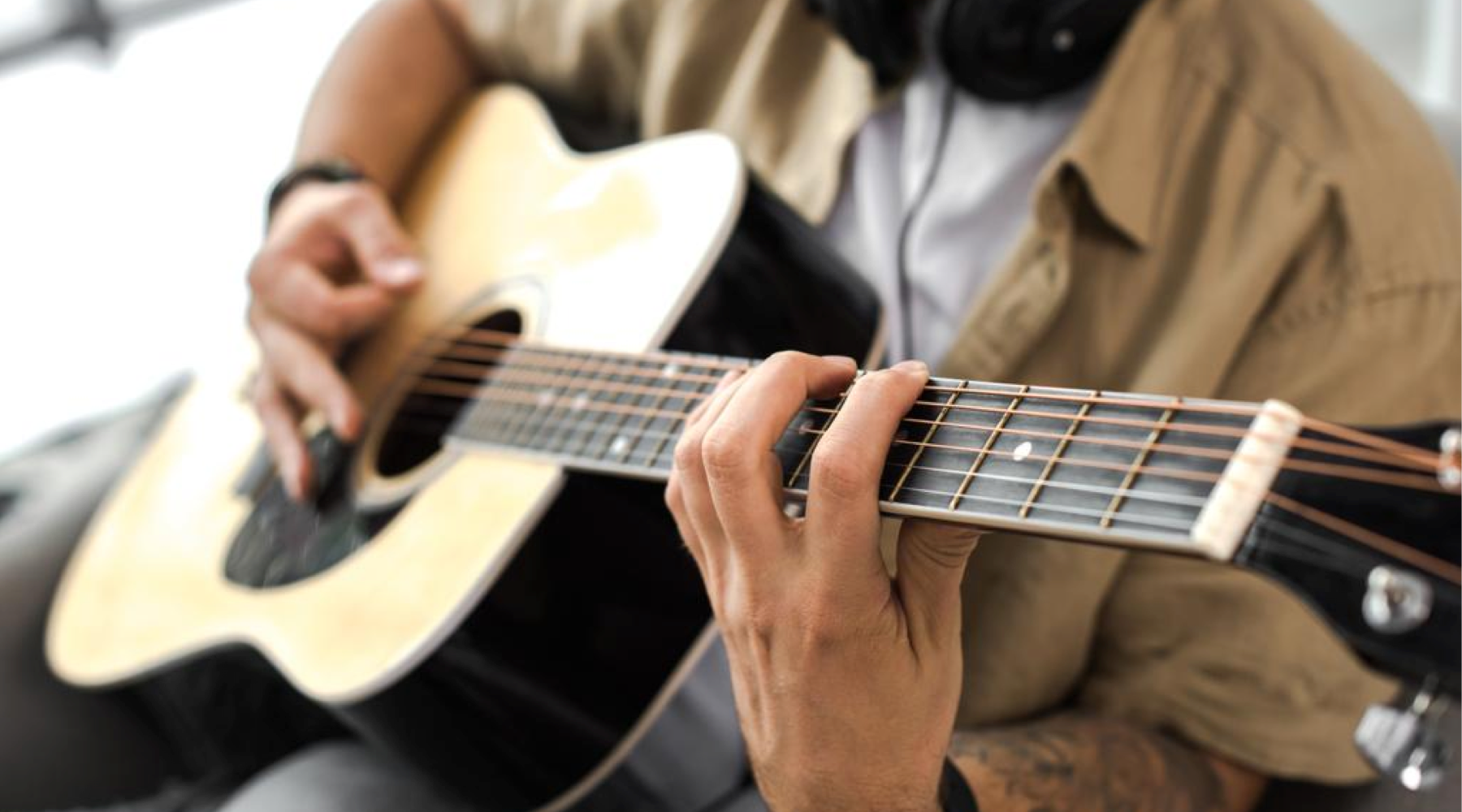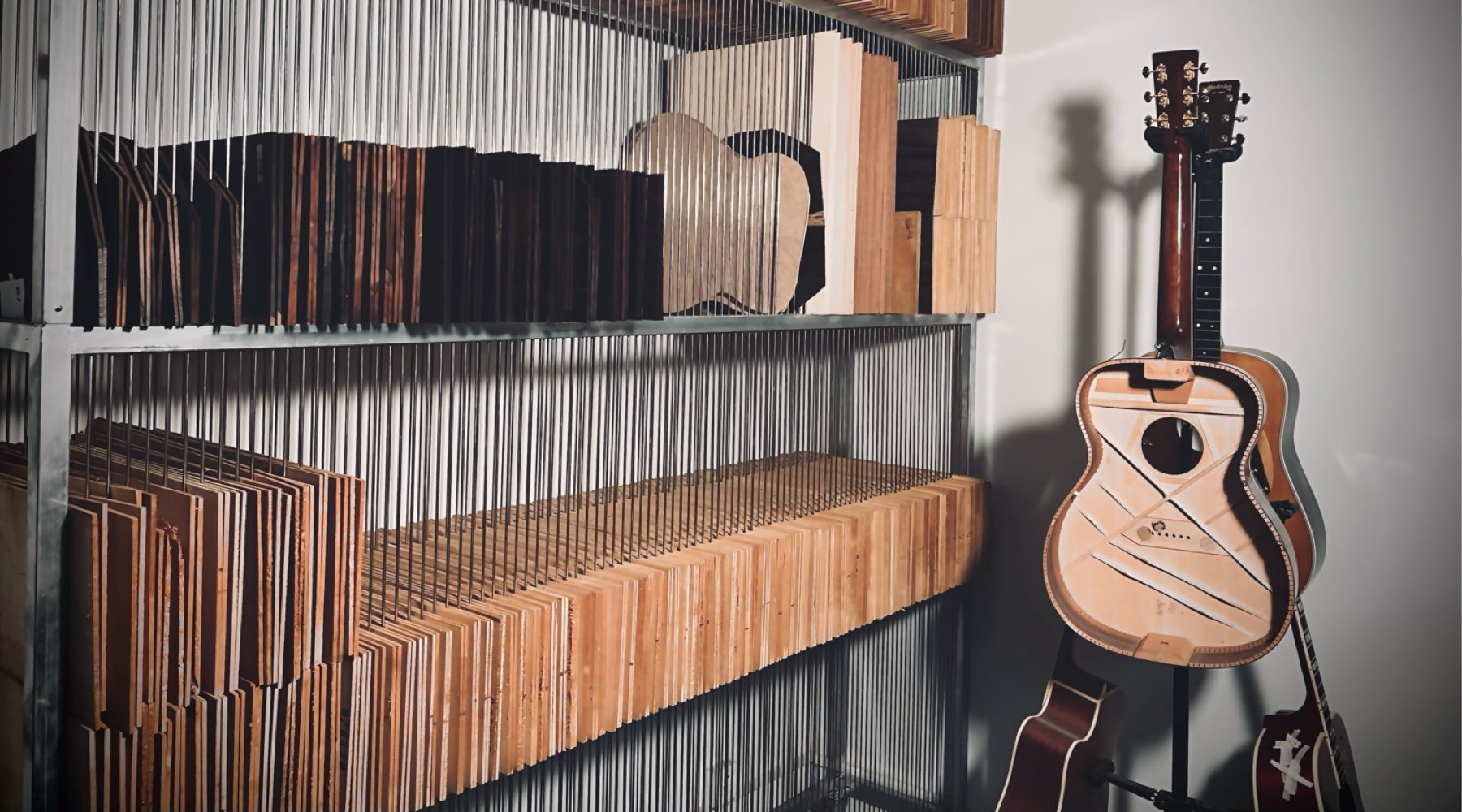How to Learn Guitar: Overcoming Mental Hurdles at Any Age
Discover how to learn guitar effectively, regardless of your age. This blog explores strategies to overcome mental blocks and develop a fulfilling guitar journey, inspired by insights from guitar expert Tony Polecastro.
Table of Contents
- Introduction to Learning Guitar
- Setting Achievable Goals
- Measuring Progress: Gain vs. Gap Thinking
- The Power of Tiny Habits
- Overcoming Plateaus in Your Playing
- Conclusion and Key Takeaways
- FAQ
Introduction to Learning Guitar
Learning guitar is an exciting journey that opens up a world of creativity and expression. Whether you're a complete beginner or returning after a long break, it's essential to approach this endeavor with the right mindset. The first step is to embrace the process and understand that every musician starts somewhere.
With countless resources available, including online tutorials and community support, the path to becoming a proficient guitarist is more accessible than ever. Remember, the key to success lies in consistent practice and a willingness to learn.
The Importance of Consistent Habits
Building consistent habits is crucial when learning how to learn guitar. Regular practice, even in small doses, can lead to significant improvement over time. Instead of overwhelming yourself with long practice sessions, consider dedicating just 15-20 minutes a day to playing.
Establishing a routine helps reinforce your commitment and keeps you engaged. Whether it’s tuning your guitar daily or practicing a few chords, these small actions build momentum. Over time, you’ll notice that these habits lead to greater skill and confidence.
Common Myths About Learning Guitar
Many aspiring guitarists fall prey to common myths that can hinder their progress. One prevalent misconception is that you need to be naturally talented to play well. In reality, dedication and practice trump innate ability. Anyone can learn to play guitar with the right mindset and effort.
Another myth is that learning guitar is a linear path. Progress often involves plateaus and setbacks. Embracing these challenges as part of the learning process will help you stay motivated and resilient.
The Myth of 10,000 Hours
The idea that you must invest 10,000 hours to master guitar is misleading. While practice is vital, the quality of your practice matters more than sheer quantity. Focus on effective techniques, and ensure that your practice sessions are productive.
Moreover, mastery is an illusion. There will always be new skills to learn and styles to explore. Instead of fixating on a specific number of hours, prioritize enjoyment and growth in your guitar journey.
The Role of Mindset in Learning
Your mindset plays a significant role in how you learn guitar. A positive attitude fosters resilience and encourages you to tackle challenges head-on. Instead of viewing mistakes as failures, see them as opportunities for growth.
It's also essential to cultivate patience. Progress may not always be visible immediately, but with persistence, you'll notice improvements over time. Celebrate small victories and remember that every guitarist has faced obstacles along the way.
Building a Guitar Community
Connecting with other guitarists can significantly enhance your learning experience. A supportive community provides encouragement, motivation, and valuable feedback. Whether it’s online forums, local meetups, or social media groups, find a community that shares your passion for guitar.
Engaging with others can also help you overcome feelings of isolation. Playing with peers not only boosts your skills but also makes the process more enjoyable. Together, you can share tips, learn from each other, and grow as musicians.
- Join online guitar forums or social media groups.
- Participate in local jam sessions or open mic nights.
- Seek out guitar classes or workshops in your area.
Remember, the journey of learning how to learn guitar is not just about individual achievement. It’s about building connections and sharing experiences that enrich your musical life.
Setting Achievable Goals
Setting achievable goals is a vital aspect of learning how to learn guitar. Goals provide direction and motivation, helping you to focus your efforts effectively. It's essential to ensure that these goals are realistic and attainable to avoid feelings of frustration.
Start by breaking down larger objectives into smaller, manageable tasks. For example, instead of aiming to master an entire song, focus on learning a single verse or a specific chord progression. This approach not only makes the process less daunting but also allows for easier tracking of progress.
- Define short-term goals (e.g., learn three new chords this week).
- Set medium-term goals (e.g., play a specific song by the end of the month).
- Establish long-term goals (e.g., perform at an open mic night within six months).
By setting clear goals, you create a roadmap for your guitar journey. Celebrate each milestone to reinforce your commitment and keep motivation high.
Measuring Progress: Gain vs. Gap Thinking
Understanding how to measure progress is crucial when learning how to learn guitar. Embracing gain thinking rather than gap thinking can transform your experience. Gain thinking involves reflecting on past achievements, while gap thinking focuses on what you still need to accomplish.
To practice gain thinking, regularly assess your progress by comparing your current skills to where you were a week, month, or even a year ago. This perspective shift fosters a sense of accomplishment and encourages you to continue improving.
- Record yourself playing regularly to track improvement.
- Keep a practice journal documenting your achievements.
- Share your progress with friends or in your guitar community for accountability.
Focusing on gains instead of gaps allows you to enjoy the journey of learning guitar rather than feeling overwhelmed by what lies ahead.
The Power of Tiny Habits
Incorporating tiny habits into your guitar practice can lead to remarkable progress. As outlined by BJ Fogg in his book, tiny habits are small, achievable actions that can be easily integrated into your daily routine.
Start by identifying a simple action related to your guitar practice. For instance, commit to opening your guitar case each day or tuning your guitar. These small steps lower the barrier to starting, making it easier to build momentum.
- Choose a tiny habit: e.g., play one chord each morning.
- Celebrate your success after completing the tiny habit.
- Gradually increase the complexity of the habit as you build confidence.
By focusing on these tiny habits, you create a consistent practice routine that leads to significant improvement over time. Remember, every little bit counts in your journey of learning how to learn guitar.
Overcoming Plateaus in Your Playing
Experiencing a plateau in your guitar playing can be frustrating, but it’s a natural part of the learning process. Instead of viewing it as a setback, consider it an opportunity for growth. Plateaus often occur when you stop challenging yourself or become too comfortable with your current skill level.
To overcome a plateau, try the following strategies:
- Set new, challenging goals to push your boundaries.
- Experiment with different genres or techniques to expand your skills.
- Seek feedback from peers or instructors to identify areas for improvement.
By embracing challenges and maintaining a growth mindset, you can break through plateaus and continue progressing in your guitar journey.
Conclusion and Key Takeaways
Learning how to learn guitar is a rewarding journey filled with opportunities for personal growth and creativity. By setting achievable goals, measuring progress through gain thinking, and incorporating tiny habits, you can create a fulfilling practice routine.
Remember to embrace challenges and view plateaus as stepping stones rather than obstacles. Celebrate your progress, no matter how small, and stay connected with your guitar community for support and motivation.
Ultimately, the key to success in learning guitar lies in persistence, a positive mindset, and a willingness to enjoy the journey.
FAQ
Is it ever too late to learn guitar?
No, it's never too late to learn guitar. People of all ages can start their musical journey and experience joy in playing.
How often should I practice guitar?
Consistent practice is more important than the duration. Aim for at least 15-20 minutes daily to build your skills gradually.
What should I do if I feel stuck in my guitar progress?
If you feel stuck, assess your goals, try new techniques, and consider seeking feedback from others. Embrace the journey and focus on small wins.
How can I stay motivated while learning guitar?
Stay motivated by setting achievable goals, celebrating progress, and engaging with a supportive guitar community. Remember to enjoy the process!




